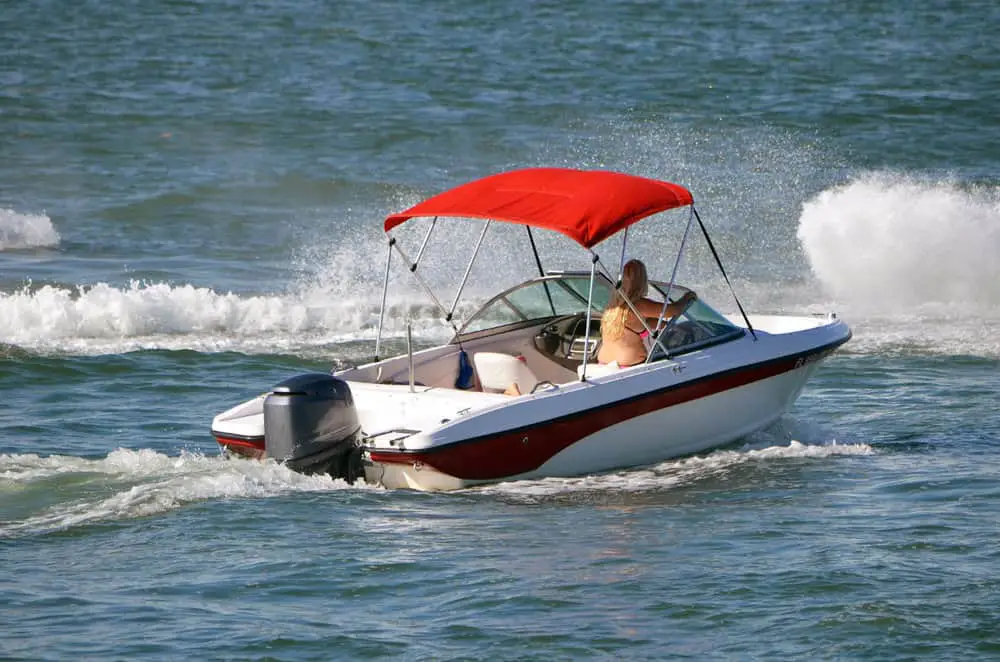Operating a boat can be as challenging as it is rewarding, which is why operators often have to learn to deal with a plethora of unexpected issues, including excessive noise and vibrations. Though seemingly benign (and often unavoidable), boat noise and vibration can have severe negative impacts on your health and safety, which is why knowing how to address them head-on can make your job that much easier.
Noise and vibration affect you when operating a boat by causing physical discomfort, slow reaction times, distractions, reduced situational awareness, communication difficulties, and tiredness. However, some products and processes can help lower boat vibrations and their side effects.
If you’re a boat operator looking to learn more about how to best deal with the vessel’s noise and vibration, you’ve come to the right place. Below, I’ll explore how these issues might affect your safety, what causes them in the first place, and how to effectively take measures to reduce their impact. Without further ado, let’s get started!
Do Noise and Vibration Affect Your Safety When Operating a Boat?

Though many maritime workers tend to underestimate vibrations and consider them part of the job, the truth of the matter is that they can have a plethora of negative effects on your health and safety, so writing the issue off might not be the best idea.
Moreover, it’s important to note that the level of exposure to vibration one experiences on a boat is dependent on which part of the vessel they spend most of their time in, so not all maritime workers are affected the same way by the issue.
According to the research linked above, those working in the engine room are regularly exposed to higher vibration levels, so operators might be especially susceptible to feeling some of the side effects. However, what exactly are these side effects?
Here’s how noise and vibration can affect your health and safety when operating a boat:
- Physical discomfort. This is the most common side effect of excessive noise or vibrations. Maritime workers operating in these conditions are bound to experience headaches, fatigue, and, in extreme cases, even hearing loss.
- Reduced situational awareness. It’s far more challenging to stay focused and aware of your surroundings when you’re distracted by excessive noise or vibrations. This issue can be especially dangerous if you’re operating a boat in high-traffic or hazardous conditions.
- Communication difficulties. A noisy, unstable environment can make it near-impossible for the crew to communicate effectively, which can be a major safety hazard for everyone on board.
- Interference with your sleep cycle. This is one of those side effects that you’d never expect but can drastically impact your quality of life. The constant rocking motion can cause sleepiness in some people, while for others, it can make it impossible to get a good night’s sleep. Either way, it can be extremely dangerous to operate a boat when you don’t have a good sleep regimen.
- Injuries. It’s not uncommon for maritime workers experiencing excessive noise and vibrations to suffer from strain, carpal tunnel syndrome, HAVS, or bursitis. Though these instances are rarer, if exposure to sub-par conditions is frequent enough, they can still occur.
- Muscle and bone damage. Having to not only balance but also work on an uneven surface can lead to severe back problems (always assuming you work in these conditions for a long enough time).
- Mental issues. Having to always work in such a chaotic environment where there doesn’t seem to be a single moment of quiet or stability can take a toll on one’s mental health as well.
- Poor judgment. Continuing off that last point, excessive noise and vibrations can easily reduce one’s attention span and make them more prone to showcasing poor judgment.
These are only a few of the negative side effects you can expect to experience as a boat operator having to deal with noise and vibration. However, since vessels are expected to move and make noise, at least to a certain degree, it’s time to clarify what the word “excessive” refers to in this context.
As you can see in this CDC graph, when noise levels surpass the 70dB threshold, they start becoming annoying and can have an effect on our physical and mental health. Most boats are designed not to surpass the 60 dB threshold at idle speeds, meaning they shouldn’t feel bothersome to most people.
Once that threshold is surpassed, though, we start becoming more and more aware of the noise, with it starting to affect our mental state and, eventually, our hearing too.
While it’s relatively easy to define what constitutes too much noise, when it comes to vibrations, it’s a bit trickier to say with certainty what is “too much.” With that said, if you’re constantly aware of the rocking motion and frequently find yourself making a conscious effort to balance, it’s safe to say that the situation can lead to mental and physical health complications should it last long enough.
That’s why, if you find yourself dealing with excessive noise and vibrations, it’s best to limit your shifts to no more than 2.5 hours; otherwise, your health will suffer just as much as your performance.
Now that you know just how dangerous a noisy, rocky boat can be, it’s time to start thinking about what you can do to combat the issue. To do that, though, you have to learn a bit more about what causes boat vibrations in the first place.
What Causes Boat Vibrations?
When on a boat, there are several sources of noise and vibrations and even though it can be tedious, it’s important to consider each of them if you’re trying to make the vessel quieter or more stable. I’ve outlined some of the most common vibration causes in boats below so you have a handy guideline to refer back to if you’re troubleshooting a problem in your vessel.
The Engine
Even the latest, most modern boats are bound to have some noise and vibrations originating from the engine. This is especially true if you’re operating a larger vessel that requires more power to move. Engines can also become damaged with use, in which case, they’ll likely become even louder.
Water Hitting Null
This phenomenon often creates resistance which, in turn, will lead to excessive vibrations. You’ll usually face this issue if the hull isn’t in optimal shape, to begin with. For example, if there are any issues with the rudder, keel, or any other components, there’s an increased chance of resistance between the hull and the water.
Wind
Maritime workers are well aware of the frightening power of the wind. It can easily create a level of noise or vibrations that even the biggest, oldest engine can’t compete with. So, if you’re sailing in particularly windy conditions, the good news is that the stability-related issues are probably temporary, and the vessel should turn back to its quiet, stable state once the weather conditions calm down a bit.
Since I mentioned weather conditions, I want to note that rough waters can be the cause of excessive noise and vibrations as well. Though, if that were the case, chances are you would’ve spotted it right off the bat. Still, sometimes our minds go directly to the most complex explanations, and we fail to consider the most straightforward ones, so keep that in mind.
Propeller Problems
If none of the possible causes above seem to be causing excessive vibrations, it might be time to check the propeller for any potential problems. For example, using the wrong-sized propeller can lead to imbalances, just like nets or damages in the component would. The same goes for a pitched propeller.
Loud Music

Though this might raise some eyebrows, loud music can actually affect a vessel’s stability. This is especially true when it comes to sound systems that aren’t properly installed or maintained. That’s why you not only want to keep music in your boat down to acceptable levels but also ensure that the system you’re using is of good quality and up to date. The bigger your vessel, the louder you can go.
Otherwise, the soundwaves that travel through the air can pass right through the boat’s structure, affecting its stability.
Check out our article on: Best Boat Speakers on the Market (Buyers Guide)
How To Lower Vibrations in a Boat
Now that you know what can cause vibrations on a boat, it’s easier to figure out what you can do to address the problem. Here are some probable solutions (depending on the results of the troubleshooting process):
- Turn down the music.
- Replace the propeller.
- Add acoustic insulation to the engine room.
- Install vibration isolation mounts.
- Adjust weight distribution.
- If possible, reduce speed.
- Use anti-vibration pads or mats.
Conclusion
Noise and vibration can negatively impact your health and safety when operating a boat; luckily, the tips outlined above can help alleviate their effects. Still, if your health has suffered from constant exposure to either of these issues, you might be entitled to compensation, so contact your lawyer to further discuss your options.
Before it comes to that, though, make sure you stay safe and healthy by learning how excessive noise and vibration can affect your safety, what causes them in the first place, and how to effectively subside them.
Project “Operation Safety” Boating
Check out our article on: What Should You Do To Avoid Colliding With Another Boat? (Safety Tips)


